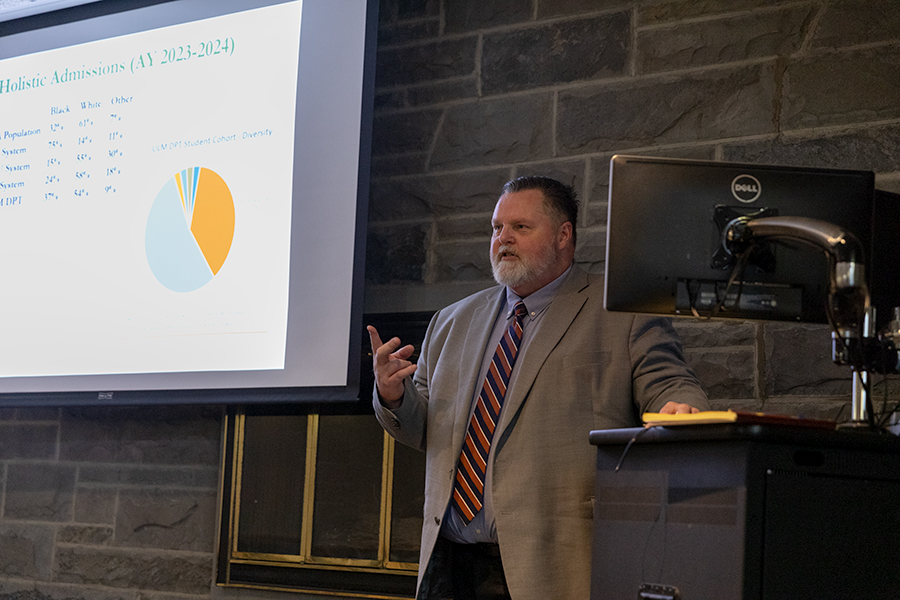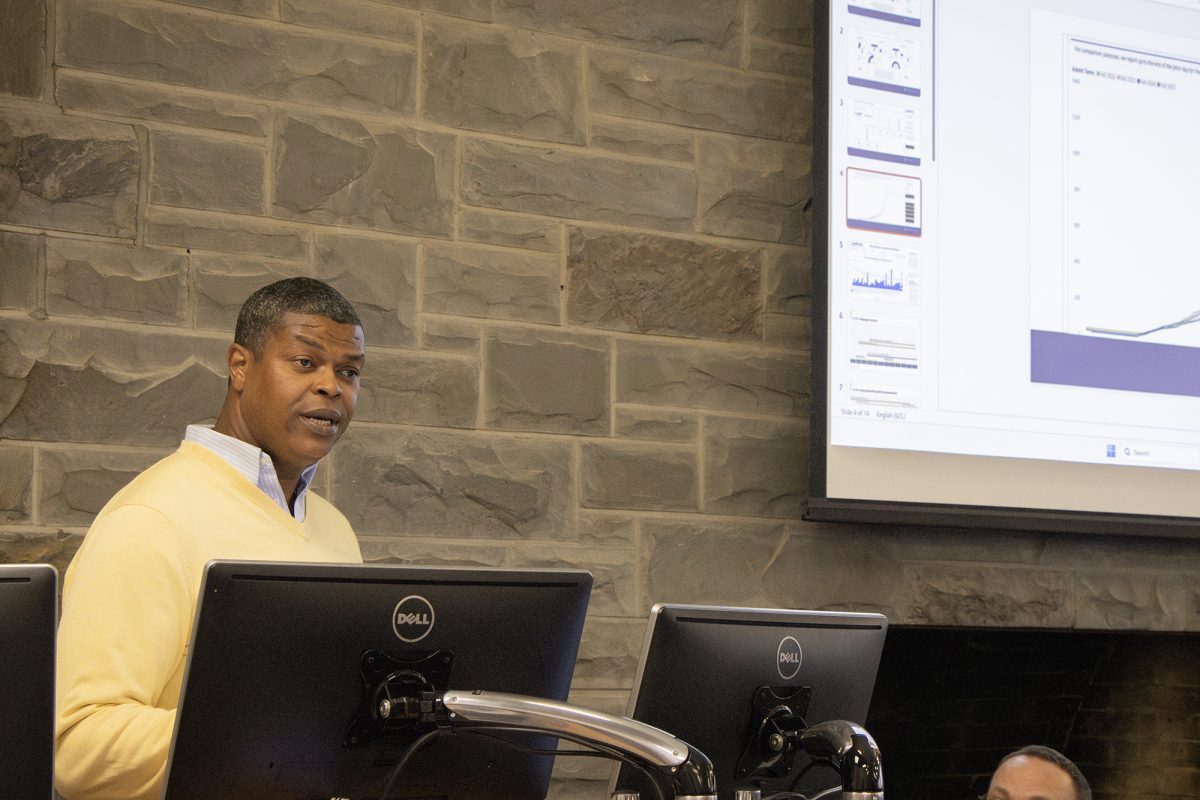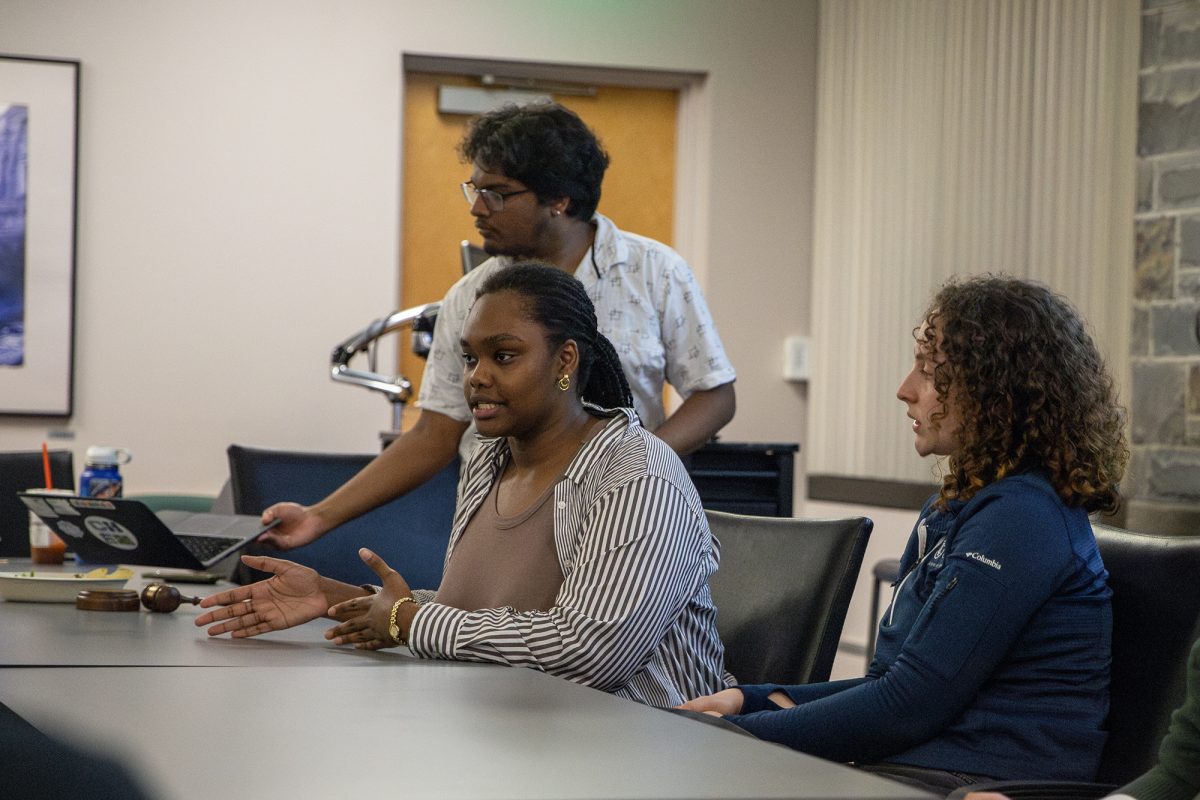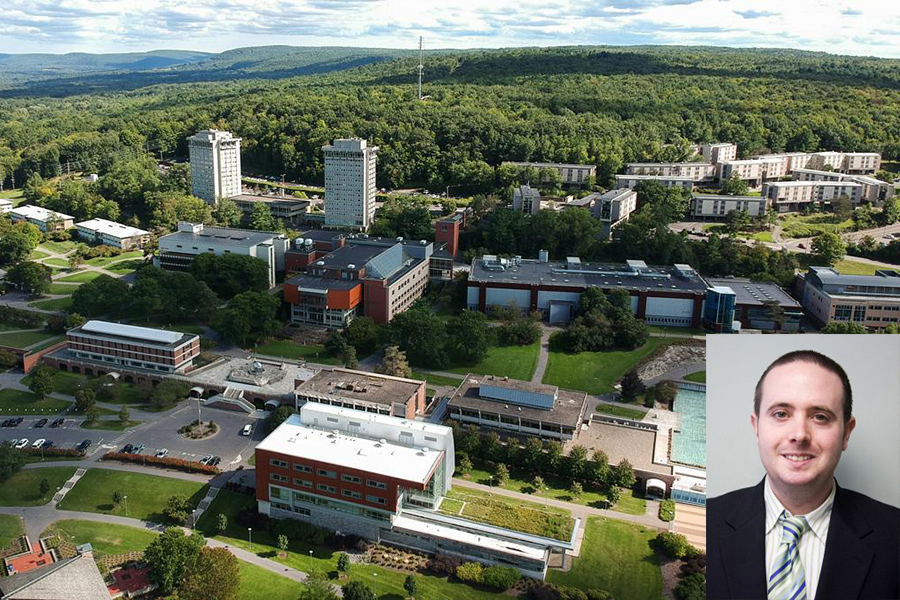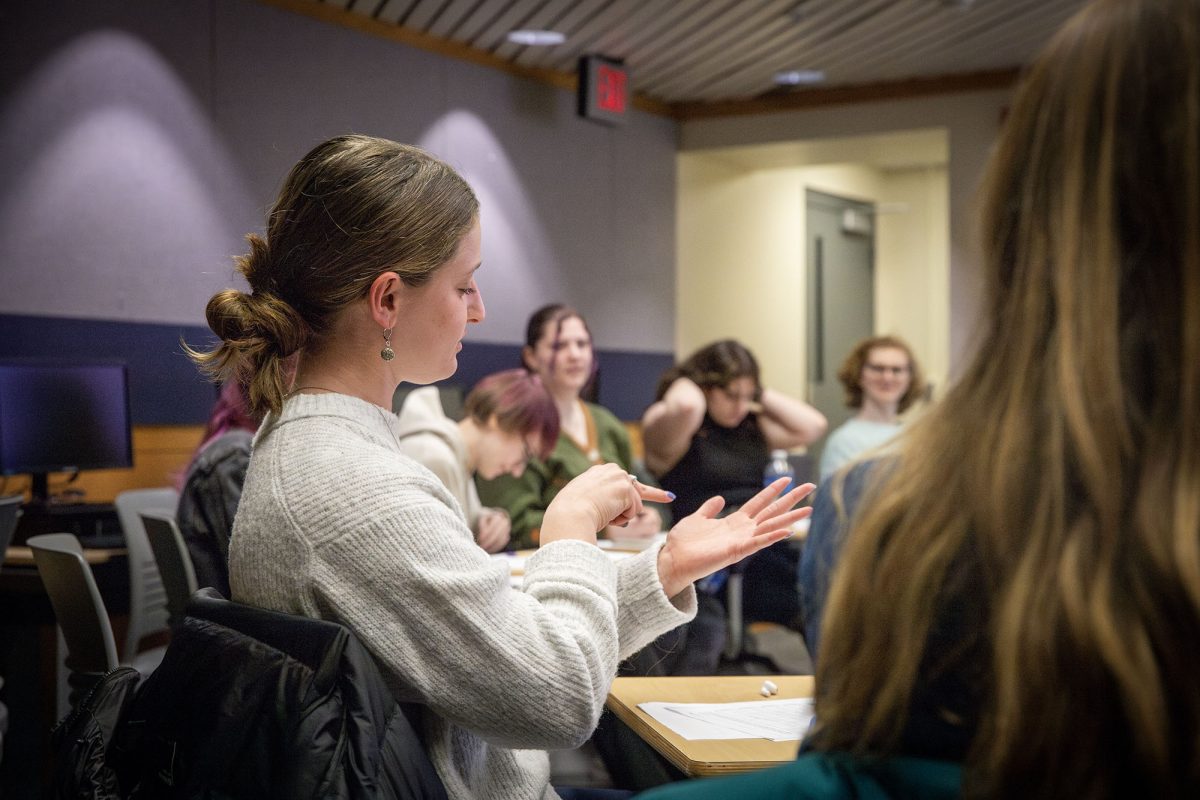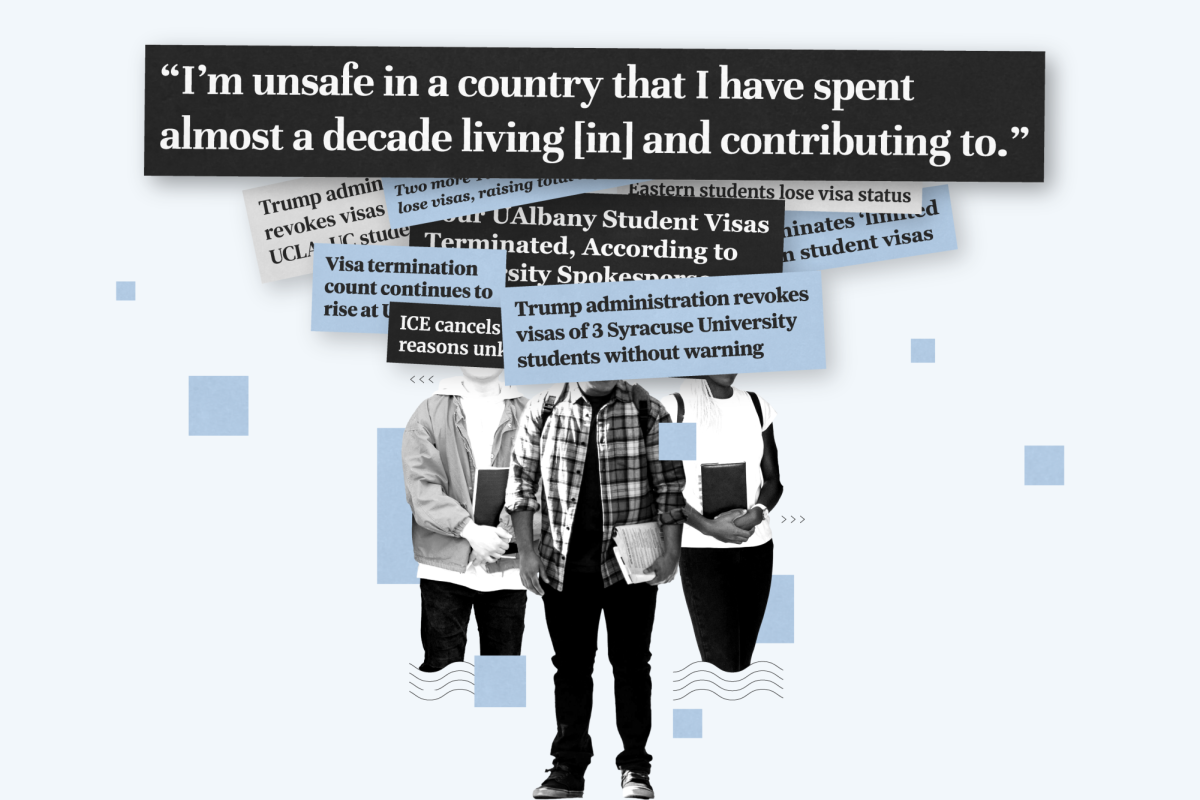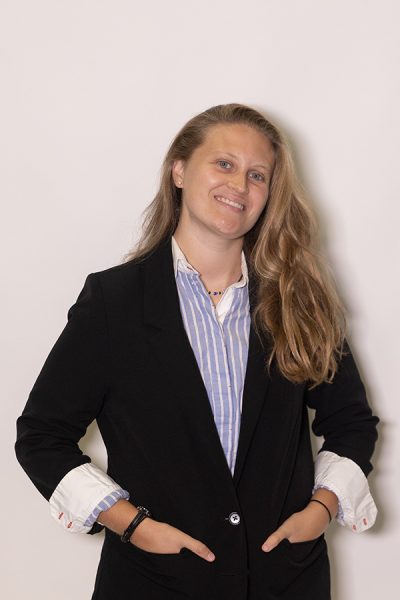Donald Simpson, special assistant to the vice president for academic affairs at the University of Louisiana Monroe, located in Monroe, Louisiana, was the third and final candidate for the dean search for the School of Human Health Sciences and Human Performance at Ithaca College. Simpson presented to about 15 people in the Klingenstein lounge Feb. 15.
Simpson used the 15-minute presentation time to introduce his background to the audience and discussed his beliefs and the challenges he observed in higher education. One of the challenges Simpson spoke about was higher education’s present and future demographic and enrollment cliffs.
Simpson said that each year, there is a projected decrease in student enrollment across all collegiate institutions, something the college should learn to adapt to. Simpson said two of the factors that contributed to this decline most recently were COVID-19 and competition among other institutions.
“It won’t affect all institutions equally, but we have to be ready to address or be proactive around this; there are threats that steepen the drop,” Simpson said. “Hugh Downs once said, ‘To say my fate is not tied to your fate is like saying your end of the boat is sinking.’ We’re all in it together.”
Communication in leadership
Simpson spoke about communication between administrators and faculty and how easily it can fail if not done properly. He said the only way to effectively communicate is to be attentive and to collaborate with others.
“I think [communication is] expensive, I think it’s important, I think it has to be done with love and affection and consideration,” Simpson said. “It’s an investment of time and resources.”
Simpson engaged the audience using okra as a metaphor for communication in a leadership position.
“Okra in and of itself, is not evil,” Simpson said. “It’s what you do to it that makes all the difference, so communication in and of itself is not a good thing. Again, it’s what you do with it that makes all the difference.”
Expanding engagement with International Students
Simpson said higher education needs to repurpose itself when colleges engage with mature and international learners. He defined the two as being different revenue streams that can drive the college to innovate and compete differently with other institutions. Simpson said that engaging with international students is important to growing the college.
“As we grow enrollment, we have to look at international students and craft what you have already worked for and package that and sell it, use it and export it internationally as well,” Simpson said.
Between the 2022-23 academic year, the college’s international student population was 3%, according to the college’s Diversity and Inclusion website.
Holistic admissions
Simpson spoke about helping to establish a Doctorate of Therapy (DTP) Program at the University of Louisiana Monroe. He said the inaugural cohort of 49 students began coursework in August 2023. Simpson said 7% of students admitted in similar programs within the U.S. are African American, so the university changed the admission process at ULM to match the admission rate of African American students to the state’s population of African Americans. He said the admission of African American students for the inaugural cohort was 37% while the state population of African Americans is 32%.
“The reason this was done was to not keep doing it the same old way, which is looking at test scores and GPA,” Simpson said. “We know that low income and underserved minorities have less access to test prep than those that do. And so how do we target those in the community where we serve?”
David Hajjar, associate professor in the Department of Speech Language Pathology and Audiology, asked Simpson what his best practices would be in terms of a holistic admissions process and if it might change between undergraduate and graduate students. Simpson said holistic admissions should not be looked at as the primary problem solver.
“I don’t think it’s one size fits all,” Simpson said. “I think it lends itself more readily to graduate professional programs than just undergraduate. But I think there are some things like, ‘How can we reduce application fees and test scores?’ Just look nationally, how many have done away with the [Graduate Record Examinations], how many are doing away with a lot of what used to be standard admission criteria to programs that are kind of rethinking that.”
Diversity, Equity, Inclusion and Belonging
Dev Neu, instructor in the Department of Occupational Therapy, asked Simpson what DEIB looks like for him. Simpson said that making someone feel like they belong can happen in different ways.
Simpson said the first thing he did when he got to ULM was create gender-neutral bathrooms for a trans student who did not feel comfortable in the dorms. Simpson also spoke about making graduation application dates and access to graduating on time more accessible to students.
He said he had faculty members post graduation application dates on their classroom sites, but also allowed students who did not have those dates to take an eight-week course any time during the semester, so the student would not have to wait until the next semester to apply to graduate.
“I think it’s crucial to look at what systems are in place and how we use our relationships and communication to change the environment so that people do feel included,” Simpson said.


